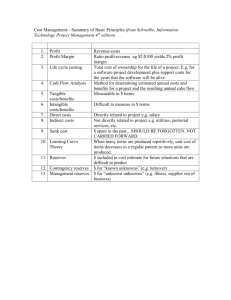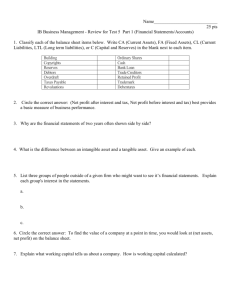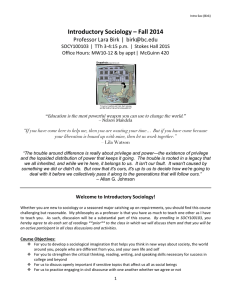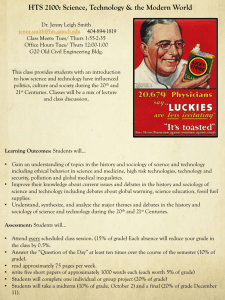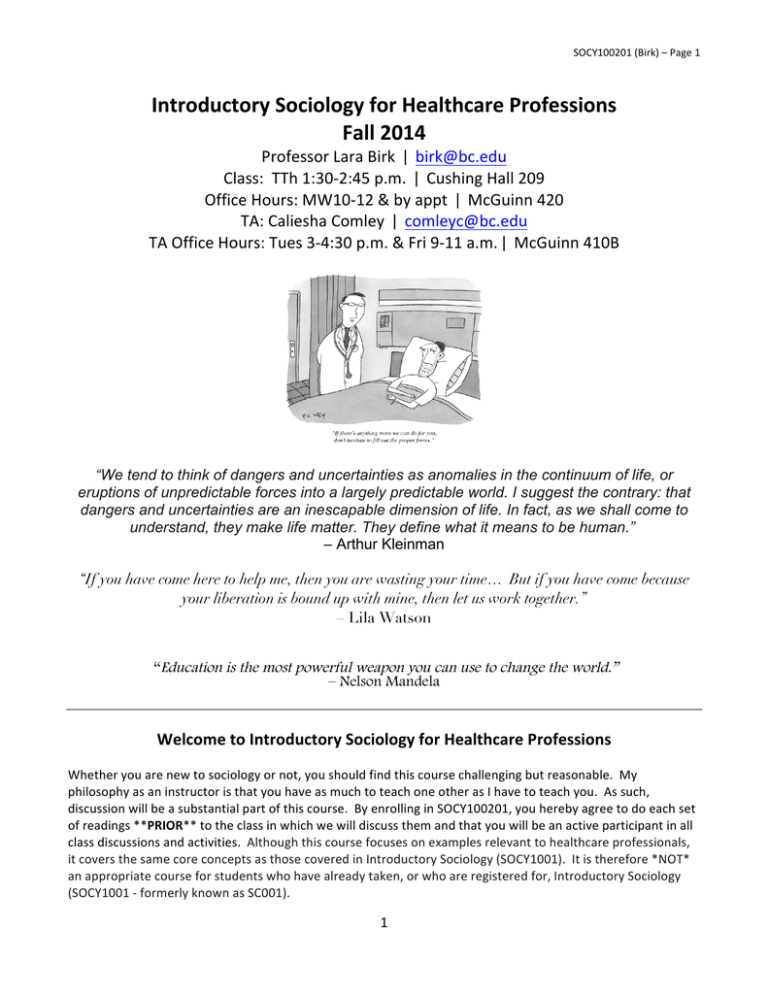
SOCY100201 (Birk) – Page 1 Introductory Sociology for Healthcare Professions Fall 2014 Professor Lara Birk ǀ birk@bc.edu Class: TTh 1:30-­‐2:45 p.m. ǀ Cushing Hall 209 Office Hours: MW10-­‐12 & by appt ǀ McGuinn 420 TA: Caliesha Comley ǀ comleyc@bc.edu TA Office Hours: Tues 3-­‐4:30 p.m. & Fri 9-­‐11 a.m. ǀ McGuinn 410B “We tend to think of dangers and uncertainties as anomalies in the continuum of life, or
eruptions of unpredictable forces into a largely predictable world. I suggest the contrary: that
dangers and uncertainties are an inescapable dimension of life. In fact, as we shall come to
understand, they make life matter. They define what it means to be human.”
– Arthur Kleinman
“If you have come here to help me, then you are wasting your time… But if you have come because
your liberation is bound up with mine, then let us work together.”
– Lila Watson
“Education is the most powerful weapon you can use to change the world.”
– Nelson Mandela
Welcome to Introductory Sociology for Healthcare Professions Whether you are new to sociology or not, you should find this course challenging but reasonable. My philosophy as an instructor is that you have as much to teach one other as I have to teach you. As such, discussion will be a substantial part of this course. By enrolling in SOCY100201, you hereby agree to do each set of readings **PRIOR** to the class in which we will discuss them and that you will be an active participant in all class discussions and activities. Although this course focuses on examples relevant to healthcare professionals, it covers the same core concepts as those covered in Introductory Sociology (SOCY1001). It is therefore *NOT* an appropriate course for students who have already taken, or who are registered for, Introductory Sociology (SOCY1001 -­‐ formerly known as SC001). 1 SOCY100201 (Birk) – Page 2 Course Objectives: For you to develop a sociological imagination about health and medicine For you to think in new ways about society, the world around you, people who are different from you, and your own life and self For you to strengthen the critical thinking, reading, writing, and speaking skills necessary for success in college and beyond For us to discuss openly important if sensitive topics that affect us all as social beings For us to practice engaging in civil discourse with one another whether we agree or not Required Texts and Devices: 1. Readings for Sociology (7th edition), edited by Garth Massey [Hereafter referred to as “RS”] 2. Seeing Ourselves: Classic, Contemporary, and Cross-­‐Cultural Readings in Sociology (8th edition), edited by John J. Macionis & Nijole V. Benokraitis [Hereafter referred to as “SO”] 3. Additional Readings in E-­‐Reserves [Hereafter referred to as “Reserves”] 4. An “I-­‐Clicker”(Note: be sure to register your i-­‐clicker under your name via Agora: http://www.bc.edu/content/bc/offices/ides/teaching_tools/iclicker/clickers-­‐students/register-­‐
clicker.html, write name on device, and record the number of your device for safekeeping.) Course Requirements: •
•
•
•
•
•
10% Attendance & Participation 10% Co-­‐Leadership of One Class Discussion 10% In-­‐Class I-­‐Clicker Quizzes 20% First Exam (in-­‐class) on Tues. 10/7 20% Paper (5 pages) – Sociological Analysis due Thurs. 11/6 30% Final Exam (Cumulative) on Wed. 12/17 (12:30 p.m.) Course Description This course is designed to do two central things, and the structure of the course reflects both aims. One, we will cover the basic essentials of introductory sociological concepts and theoretical approaches as we would in any other Introductory Sociology course (paying particular attention to material that may appear on the MCAT). Two, we will explore these ideas as they apply both to the medical field and also to your anticipated participation in that field, and during one extended section of the course, we will examine concepts fundamental to medical sociology and the sociology of health and illness. Throughout the semester, we will consider many perennial questions, such as is society “fair”? Why do some groups have more power than others? Are we free agents or does society exert some control on and influence over our lives and choices? We will sustain an intense focus on class, race, and gender, as well as sexual orientation and disability. We will examine different groups’ relations to power and attend to the many ways in which these factors intersect and affect our own lives, particularly as pre-­‐healthcare professionals. The development of a “sociological imagination” is at the heart of this course. Throughout, we will take up C. Wright Mills’ call for us to investigate the relationship between “personal troubles” and “public issues.” In other words, we will analyze the connections between the seemingly private events of our own lives (and those of our future patients) on the one hand, and history and social structure on the other. I will challenge you to use the course to critically examine your previously held assumptions and unarticulated beliefs and to develop a thoughtful and informed approach to not only your future in the medical field but to life in general. You should come away with a richer sense of your own place in society and your potential to make a difference in it as a healthcare professional grounded in important sociological insights. 2 SOCY100201 (Birk) – Page 3 Attendance Policy In a 60-­‐person course, it would not be surprising if you were to feel it unnecessary for you to attend or participate in every single class. However, in this course, I expect not only that you show up to each and every class meeting, but that you actively participate in all in-­‐class discussions and activities. Regular quality participation is necessary for you to do well in this course, and I expect you as future healthcare professionals to take seriously your responsibility as active learners. I-­‐clickers will be used to determine your attendance. Therefore, remember to bring your i-­‐clicker to EVERY class. We cannot count your attendance if you happen to forget your device one day. If you anticipate missing class due to illness, a family matter, or another emergency, please email me either prior to or shortly after missing class with an explanation (notes from deans also accepted). If you miss 3 or more classes during the semester, it will adversely affect your grade. If you miss 7 classes or more, you will receive an automatic failure. Disability Policy Boston College strives to allow full participation from all students. If you are a student with a documented disability seeking reasonable accommodations in this course, please contact Kathy Duggan, (617) 552-­‐8093, dugganka@bc.edu, at the Connors Family Learning Center regarding learning disabilities and ADHD, or Paulette Durrett, (617) 552-­‐3470, paulette.durrett@bc.edu, in the Disability Services Office regarding all other types of disabilities, including temporary disabilities. Advance notice and appropriate documentation are required for accommodations. A Note on Academic Integrity: Violations of academic integrity are a serious breach of the honor code implicit in the everyday operations of university life. Presenting another’s work as your own is not only intellectually dishonest but also wasteful. Engaging in any form of cheating, plagiarism, and the like only cheats you of the education you are here to get. As such, you are expected to present only your own work, ideas, and insights as your own and, in cases where you do borrow the words or ideas of another, to give credit where credit is due. For a full statement on the University’s academic integrity policies, please see: http://www.bc.edu/offices/stserv/academic/integrity.html and http://www.bc.edu/schools/cas/polisci/integrity/quiz. Assignment Schedule: Section 1: Introduction to Sociology Date Due Assignment Topic Tues. 9/2 No Readings Introductions Thurs. 9/4 RS Ch. 2 (Mills: Sociological Imagination); SO Ch. 2 (Berger: Invitation to Sociology) & SO Ch. 4 (Miner: Body Ritual of the Nacirema) The Sociological Imagination 3 SOCY100201 (Birk) – Page 4 Tues. 9/9 Thurs. 9/11 RS Ch. 3 (Durkheim: What Makes Sociology Different); SO Ch. 6 (Babbie: The Importance of Social Research) & RS Ch. 6 (Best: Telling the Truth about Damned Lies and Statistics) SO Ch. 15 (Mead: The Self); RS Ch. 18 (Goffman: On Facework); SO Ch. 20 (Goffman: Presentation of Self in Everyday Life) What is Sociology? The Social Self Section 2: Structure & Identity: Gender, Class, Race, Sexual Orientation, and Status Date Due Tues. 9/16 Thurs. 9/18 Tues. 9/23 Thurs. 9/25 Tues. 9/30 Assignment RS Ch. 14 (Messner: Boyhood, Organized Sports, and the Construction of Masculinities); Kilbourne: The More You Subtract, the More You Add (Reserves); SO Ch. 39 (Lorber: Night to His Day: The Social Construction of Gender) Herek: Beyond Homophobia (Reserves); Kimmel: Masculinity as Homophobia (Reserves) RS Ch. 15 (Lareau: Concerted Cultivation and the Accomplishment of Natural Growth); Lubrano: The Bricklayer’s Son (Reserves); RS Ch. 20 (Bettie: Women Without Class) McIntosh: White Privilege and Male Privilege (Reserves); RS Ch. 22 (Waters: Optional Ethnicities); SO Ch. 44 (Brodkin: How Did Jews Become White Folks?); SO Ch. 45 (Zhou: Are Asian Americans Becoming White?) Miville, et al: Chameleon Changes (Reserves); Sue, et al: Racial Microaggressions and the Asian American Experience (Reserves); Powell et al: Toward a Transformative View of Race (Reserves) Topic Gender Sexual Orientation & Homophobia Social Class Social Construction of Race & Ethnicity Racism Thurs. 10/2 RS Ch. 9 (Read and Bartowski: To Veil or Not to Veil); RS Ch. 26 (Benton-­‐Cohen: From Borderline Americans); & SO Ch. 60 (Portes: The English Only Debate) Religious & Immigrant Status Tues. 10/7 FIRST EXAM IN-­‐CLASS Section 3: Sociological Lens on Health and Medicine Date Due Assignment Topic Thurs. 10/9 Williams & Sternthal: Understanding Racial-­‐ethnic Disparities in Health (Reserves); Link and Phelan: Social Conditions as Fundamental Causes of Disease (Reserves) Biosocial Determinants of Health Inequalities 4 SOCY100201 (Birk) – Page 5 Tues. 10/14 Thurs. 10/16 Tues. 10/21 Thurs. 10/23 Tues. 10/28 Thurs. 10/30 Tues. 11/4 Conrad, et al: Estimating the Costs of Medicalization (Reserves); Clarke, et al: Biomedicalization (Reserves) SO Ch. 27 (Beagan: Even If I Don’t Know What I’m Doing…); Timmermans and Oh: The Continued Transformation of the Medical Profession (Reserves) SO Ch. 63 (Dorkenoo & Elworthy: Female Genital Mutilation); WHO on FGM (Reserves); Farmer: Never Again? Reflections on Human Values and Human Rights (Reserves) Kleinman: The Personal and Social Meanings of Illness (Reserves); Frank: When Bodies Need Voices (Reserves) Medicalization Medicine as a Profession Human Rights and the Role of Culture Illness Experience and Patients Telling Stories Garland Thomson: Shape Structures Story: Fresh and Feisty Stories about Disability (Reserves); Mairs: On Being a Cripple (Reserves); Seibers: Disability in Theory (Reserves) Parker-­‐Oliver: The Social Construction of the Dying Role… (Reserves); Hartocollis: Hard Choice for a Comfortable Death (Reserves); Goodnough: As Nurse Lay Dying (Reserves) Styron: from Darkness Visible (Reserves); Karp: Searching for Authenticity (Reserves); Kirmayer: Cultural Variations in the Clinical Presentation of Depression and Anxiety (Reserves) Physical Disability Death and Dying Mental Illness Thurs. 11/6 Birk: Erasure of the Credible Subject (Reserves); Jackson: Stigma, Liminality, and Chronic Pain (Reserves) Chronic Physical Pain Thurs. 11/6 PAPER DEADLINE 5 PAGE PAPER DUE SOCIOLOGICAL AUTOBIOGRAPHICAL ESSAY Section 4: Macro Sociology: Capitalism, Democracy, & Inequality Date Due Assignment Tues. 11/11 SO Ch. 11 (Marx and Engels: Manifesto of the Communist Party); SO Ch. 49 (Mills: The Power Elite); Rothkopf: Superclass, Introduction (Reserves) RS Ch. 31 (Gans: Uses of the Underclass in America); SO Ch. 37 (Eglitis: The Uses of Global Poverty: How Economic Inequality Benefits the West); RS Ch. 23 (Ehrenreich: Nickel and Dimed); RS Ch. 25 (Thompson: Hanging Tongues) SO Ch. 58 (Bowles and Gintis: Education and Inequality); SO Ch. 59 (Kozol: Savage Inequalities: Children in US Schools); Aronson: Breaking Barriers or Locked Out? (Reserves) Thurs. 11/13 Tues. 11/18 Topic 5 Capitalism & Democracy Economic Inequality Educational Inequalities SOCY100201 (Birk) – Page 6 Section 5: Deviance & Social Control Date Due Assignment Topic Thurs. 11/20 SO Ch. 28 (Durkheim: The Functions of Crime); SO Ch. 30 (Anderson: The Code of the Streets); SO Ch. 31 (Farley: Prostitution: A Worldwide Business of Sexual Exploitation) Deviance Tues. 11/25 Ferguson: Bad Boys, The Punishing Room (Reserves); RS Ch. 29 (Chambliss: The Saints & the Roughnecks) Labeling Theory NO CLASS THANKSGIVING BREAK Goffman: Stigma and Social Identity (Reserves); Link & Phelan: Conceptualizing Stigma (Reserves) Stigma Thurs. 11/27 Tues. 12/2 Thurs. 12/4 Tues. 12/9 Wed. 12/17 SO Ch. 29 (Rosenhan: On Being Sane in Insane Places); Goffman: The Mortified Self (Reserves); RS Ch. 32 (Shearing and Stenning: From Panopticon to Disney World) RS Ch. 5 (Kelman and Hamilton: The My Lai Massacre) & Meyer: If Hitler Asked You to Electrocute a Stranger, Would You? Probably (Reserves) FINAL EXAM (12:30-­‐2:30 p.m.) Total Institutions & Social Control Obedience CUMULATIVE **I reserve the right to make changes to this syllabus at any time, provided I give you fair and ample warning.** 6

